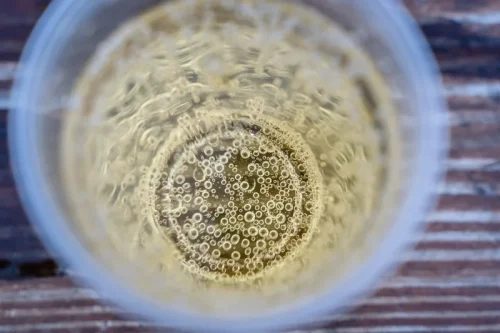
Heavy drinkers are more likely to engage in risky behavior, which includes being violent and acting out hostile emotions, often against a loved one. Ultimately, nobody knows what comes first—anger or alcohol use disorder (AUD). However, some studies have been done to better understand who is more at risk. If anger is a symptom of someone’s mental health disorder, alcohol can intensify the anger to dangerous levels.
Individualized, evidence based treatment, to fit your needs.
Notwithstanding the progress that has been made in the alcohol use disorders treatment field, innovative treatment strategies are still needed. A person may become very tense and have https://ecosoberhouse.com/article/what-is-alcoholics-anonymous/ difficulty winding back down. Muscle tension, headaches, irregular heart rate and blood pressure, sleep difficulties, and the potential for heart problems or even stroke may be possible risk factors for chronic anger and emotional regulation issues. Add in alcohol abuse, and the multitude of possible social, emotional, physical, financial, and behavioral problems related to alcohol addiction, and the risk factors and potential for negative side effects go up exponentially. The present work provided the information on role of anger on treatment outcome among dependent and abstainers.
Substance Use Treatment

If you don’t know how to express anger, your frustrations can make you miserable or cause you to explode in an angry outburst. As with all research, this study has limitations which should be considered in interpreting our findings. First, the modest sample size did not allow for detection of meaningful but relatively small between-group differences and effect sizes. However, the sample size was appropriate to the state of knowledge in the field, this being the first randomized controlled trial with a new and untested intervention.
Addiction Treatment Services
- Further, we tested whether this predictive ability varied as a function of treatment condition.
- Similarly, in nearly 40% of violent incidents, surveyed individuals from the United Kingdom said they believed their perpetrator was under the influence of alcohol.
- Another study explored the relationship between Posttraumatic Stress Disorder (PTSD), alcohol use, and violence (Blakey et al., 2018).
- These programs organize your treatment session based on your schedule.
- It highlights the integration of screening of anger among alcohol users at de-addiction center as well as the use of anger management strategies as a part of psychosocial intervention.
Drinking helps someone escape their negative emotion of anger, and feeling angry lets them avoid the fact that alcoholism and anger drinking has become a problem. The two feed off one another and can be dangerous to their health and well-being. Control of emotions isn’t the only link between alcohol and anger. They feel anger to avoid other more challenging emotions and behaviors. Anger management and alcohol treatment programs must recognize and educate participants about the relationships between alcohol and anger. It’s equally important that psychotherapists highlight this interaction both with clients who consume alcohol and those in relationships with them.

Anger Treatment Options

During-treatment improvements in the remaining anger and anger-related cognition measures predicted clients’ positive posttreatment alcohol involvement; however, predictive strength was not significantly different between treatment conditions. The journal Experimental and Clinical Psychopharmacology reports on studies showing that alcohol can increase aggression in both men and women, but more so in men. Alcohol impairs a person’s executive functioning, making it harder for them to think clearly and make rational decisions.
- If you live with underlying anger challenges, for example, it may not be as noticeable when you’re sober because your frontal lobe allows you to manage your emotions and your behaviors.
- As the brain becomes accustomed to the presence of alcohol, it may become more difficult for the individual to regulate their emotions, leading to increased irritability, aggression, and outbursts of anger.
- The most self-evident way to stop being an angry drinker is to quit drinking altogether.
- This allowed us to model clients as random factors and to nest repeated measures within each client.
- Since this research was conducted, the study of predictors of outcome has progressed substantially (c.f., Adamson, Sellman & Frampton, 2009 for a review).